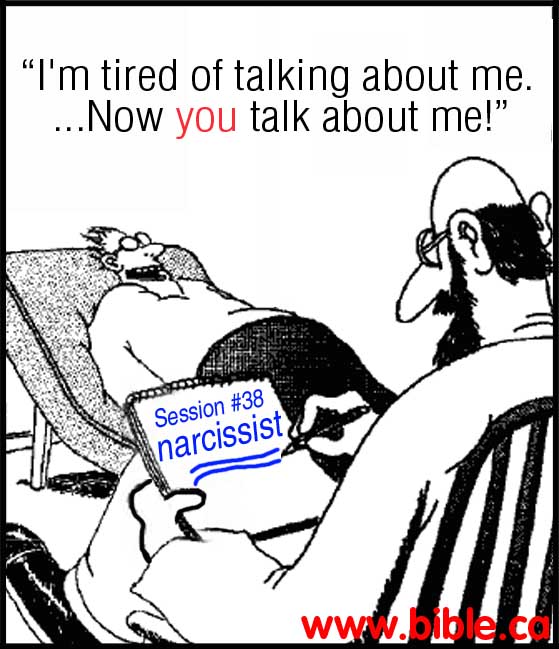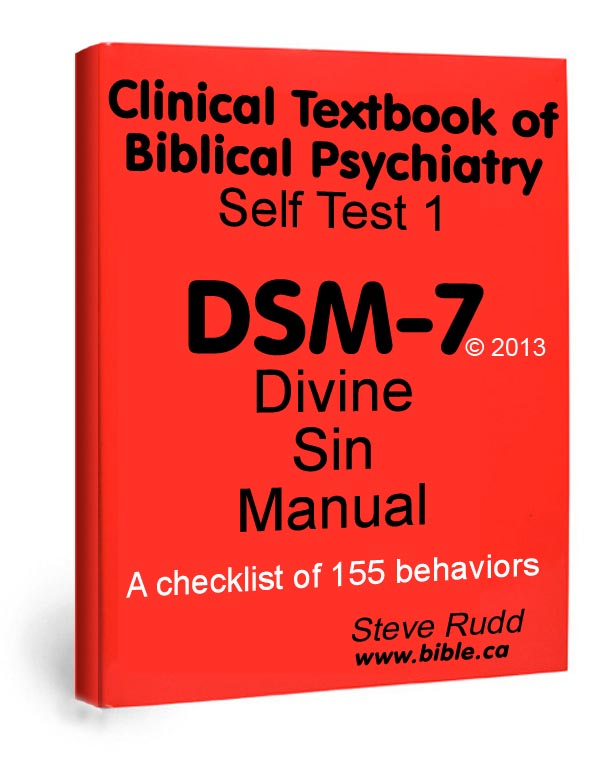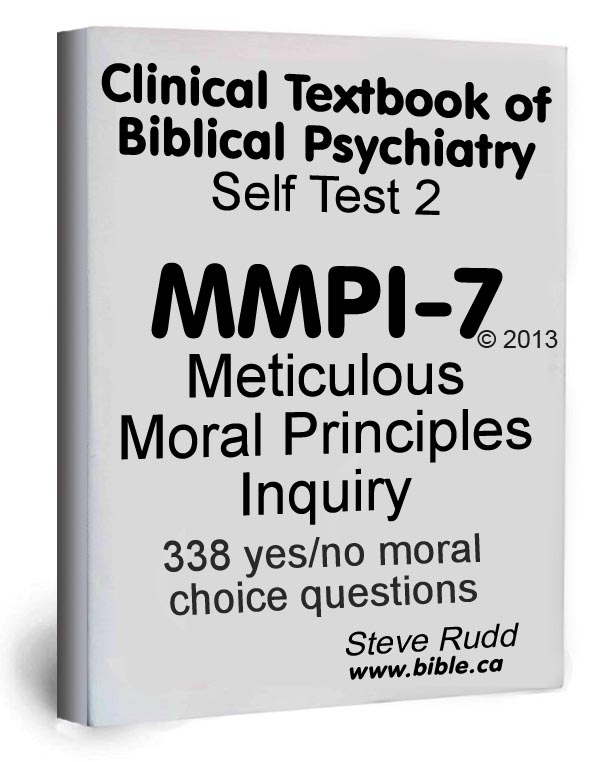The Biblical pattern of counseling:
The free, three sessions, Biblical counseling system
|
A system that works. "I propose to distinguish three stages, or types, of mastery of interpersonal processes: coercion, self-help, and cooperation. Coercion is the simplest rule to follow, self-help is the next most difficult, and cooperation is the most demanding of them all." (The Myth of Mental Illness, Thomas Szasz, 1961 AD, p213) |
Introduction:
- We have pioneered "The free, three sessions, Biblical counseling system".
- Our Biblical counseling system revolutionary because the person needing help, teaches a Christian councilor of their choice, the structural framework and then submits themselves under their advice. The person seeking counseling likely has a Christian in mind who would likely be able to fix the problem. But this Christian needs to learn The free, three sessions, Biblical counseling system. Once this is agreed upon the first of three session begins!
- This system actually works better than paid counseling from psychologists and psychiatrists who usually give the exactly wrong advice!
- At the end of each one hour session, the councilor must offer his advice on how to resolve the problem. The advice is based upon the information the person supplies. Generally people in counseling don't like the advice given, so they will give you new and more complete information next session in the hopes of you changing the advice you offered in the previous session. By the end of the third session, enough information is known for definitive and conclusive advice.
- Because it is free, it ensures that the councilor gets right down to the matter quickly, since he has nothing to gain.
- Since there are only three sessions, the person seeking help will disclose enough truthful information in order for a judgement to be made on how to fix the problem.
- Since
many people seek counseling because they like talking about themselves,
the three session limit weeds out only the one's who are serious about
making changes.

- The best places for these one hour counseling sessions is a public coffee shop or a restaurant. In rare circumstances, kitchen tables or family rooms are alternatives if more privacy is needed. Couches are never used.
A. Studies put forward by Mental Health associations merely ask the patients to rate effectiveness of treatment. Actual clinical studies that have been done indicate 85% would get better without any professional help:
1. "Factors for Change" percent of improvement: spontaneous improvement: 40%. Common non-specific factors: 30%. Placebo effect: 15%. Specific treatment: 15%. ... Based on this, one could conclude that 85 per cent of clients would improve with the help of a good friend and 40 per cent without even that. Many similar studies have supported the overall conclusion that most of the improvement attributed to psychotherapy is due to the general effects of talking to a warm, kind person and the effect of just naturally eventually feeling better anyway. (Manufacturing Victims, Dr. Tana Dineen, 2001, p 117)
2. Rather than being the best suited to evaluate therapy, psychologists and their clients are the least able to answer the questions: Is therapy effective? Is it any better than friendship? Do high-paid professionals do a better job than minimally trained counselors? Does training and experience improve a therapist's skill? Is therapy always safe? Do professionals know more about human nature than the rest of us? Would people naturally get worse without professional treatment? They say yes to all of these questions while scientific studies that address them are coming to a resounding NO! ... This "NO" is a warning - an invitation to look more closely at the claims that psychotherapy works. (Manufacturing Victims, Dr. Tana Dineen, 2001, p 114)
3. "Surveys show that of patients who spend upwards of 350 hours on the psychoanalyst's couch to get better-two out of three show some improvement over a period of years. The fly in that particular ointment, however, is that the same percentage get better without analysis or under the care of a regular physician. As a matter of fact, that same ratio-two out of three people-got better in mental hospitals a hundred years ago. . . . Patients get better regardless of what is done to them. Unfortunately the analyst often interprets improvement as a result of his treatment. It does not bother him that other people use other methods with equal effect-hypnosis, electric shock, cold baths, the laying on of hands, the pulling out of teeth to remove foci of infection, suggestion, dummy pills, confession, prayer." (Dr. H. J. Eysenck, 1n Time Magazine, February 14, 1964, p. 43.)
4. "Once bright with promise, psychoanalysis today seems hardly worth the millions we are lavishing on it each year. In the U. S. there are approximately 18,000 psychiatrists-as against about 484 in France and l,000 in Italy. And about nine per cent at their couch-side listening posts throughout this great land are psychoanalysts.... Many of these doctors and patients have begun to take stock: have the benefits of psychoanalysis justified the hours of torturous self-examination, the years of painfully slow probing, the $25,000 or so spent for the complete "treatment"? In short, are psychiatry and psychoanalysis worth the millions-a-year Americans lavish on it? . . . The truth is that not only is the dramatic breakthrough and cure almost nonexistent, but thousands upon thousands who have spent millions upon millions aren't at all certain whether they are one whit less "neurotic" than before they began their five-times-a-week, $25-a-session trudge to the psychoanalyst's couch... But much more significant than the gradual disillusionment of patients is the wholesale defection of analysists themselves from the Freudian fold. Many doctors are now sharply challenging the need for long-drawn-out excavations of the subconscious.)" (Dr. H. J. Eysenck, Time Magazine, February 14, 1964, p. 43)
B. What to do to prepare for your counseling meeting:
- Get a full medical checkup that includes full blood. Go to a doctor and have every test done on their body to eliminate any biological problem and prove they are healthy. Continued claims to be sick, after seeing a doctor are inventions chosen to achieve a specific goal. Identify what benefit they derive from the aches, pains they suffer.
- Choose a Christian who attends church every Sunday. Avoid Christians who do not attend every Sunday because they will likely give no better advice than non-Christians and professional paid counselors.
- Print and
complete the questionnaire in the DSM-7:

- Print and
complete the questionnaire in the MMPI-7:

- Print and
complete the questionnaire in the EDS-7:

- Bring these to three completed forms and present them to your councelor.
C. The free, three sessions, Biblical counseling system:
Print and give this to a Christian whom you chosen to help you with your problem:
- I am asking you to help me with a problem I am having, namely: ___________
- We will meet at this coffee shop: _____________________
- We will have a single, one hour talk together.
- Your job is to determine what advice I need to hear to solve my problem by the end of the one hour session.
- You must offer your advice at the end of the session.
- If I feel I need to talk to you again, we will meet for a second and third, one hour session. At the end of each of these sessions you will give me your advice again.
- We will meet for a maximum of three sessions.
- You will not get paid for this, although, I may buy your coffee!
- Here are the three forms I completed from the DSM-7, MMPI-7 and EDS-7.
Conclusion:
1. It is that simple, but you will have to work hard to achieve your goals:
a. "I propose to distinguish three stages, or types, of mastery of interpersonal processes: coercion, self-help, and cooperation. Coercion is the simplest rule to follow, self-help is the next most difficult, and cooperation is the most demanding of them all." (The Myth of Mental Illness, Thomas Szasz, 1961 AD, p213)
2. Listen to what they tell you and accept their advice.
3. Make all the moral changes required to bring your lifestyle into conformity with the commandments of Jesus Christ.
By Steve Rudd: Contact the author for comments, input or corrections.
Send us your story about your experience with modern Psychiatry

